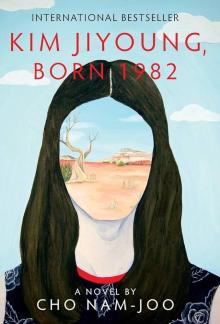
Kim Jiyoung, Born 1982
Kim Jiyoung, Born 1982 follows one woman’s psychic deterioration in the face of rampant misogyny. In a tidy apartment on the outskirts of Seoul, millennial “everywoman” Kim Jiyoung spends her days caring for her infant daughter. But strange symptoms appear: Jiyoung begins to impersonate the voices of other women, dead and alive. As she plunges deeper into this psychosis, her concerned husband sends her to a psychiatrist. Jiyoung narrates her story to this doctor—from her birth to parents who expected a son to elementary school teachers who policed girls’ outfits to male coworkers who installed hidden cameras in women’s restrooms. But can her psychiatrist cure her, or even discover what truly ails her?
Great World Texts, an initiative of the Center for the Humanities at the University of Wisconsin-Madison, is additionally supported by the UW-Madison Libraries; the Evjue Foundation; the Wisconsin Book Festival; the Anonymous Fund of the University of Wisconsin-Madison; and the Departments of American Indian Studies, History, and English and Creative Writing.
In conversation with Dr. Eunsil Oh.
Cho Nam-joo

Cho Nam-joo is a former television scriptwriter. In the writing of this book, she drew partly on her own experience as a woman who quit her job to stay at home after giving birth to a child. Kim Jiyoung, Born 1982 is her third novel. It has had a profound impact on gender inequality and discrimination in Korean society and has been translated into 18 languages.
Eunsil Oh

Eunsil Oh is a professor in an Assistant Professor of Sociology and Asian Languages and Cultures at the University of Wisconsin-Madison. Oh conducts research on gender, work, and family in the context of East Asia. Using qualitative methods, she investigates cultural and structural foundations of work and family decision-making processes. Current projects include research that investigates the relationship between social change and gender norms in East Asia and the low fertility patterns in South Korea.
